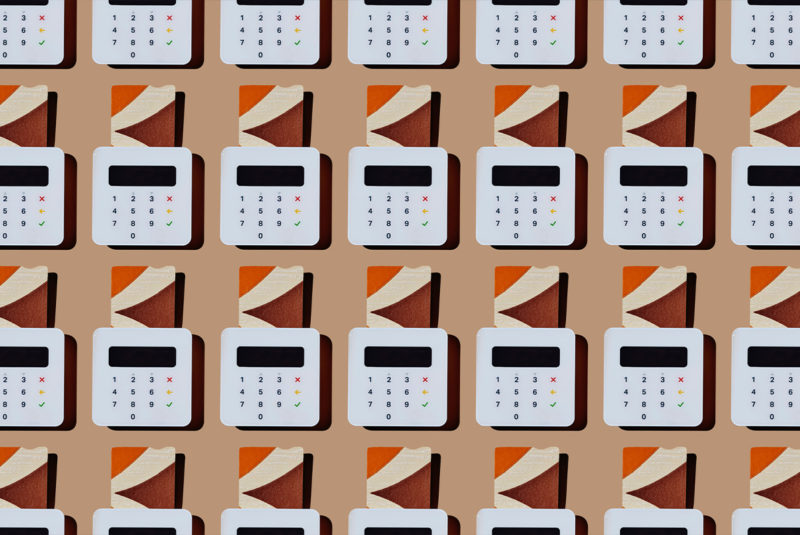Best Pick for: Unsecured Card for Easy Approval
Petal® 1 “No Annual Fee” Visa® Card
Petal® 1 “No Annual Fee” Visa® Card can smooth things out if you’re struggling to rebuild your credit. It’ll consider more than the usual factors when deciding your creditworthiness. The card goes beyond your credit scores, though you’ll need to share your bank account records.
Petal’s “cash-flow technology” will analyze your income, savings and spending to see if you qualify. This gives you a better shot if your scores aren’t looking too great.
Petal® 1 is a good option because there’s no annual or foreign transaction fee, and there are some reward opportunities. Thanks to Petal’s unique underwriting process, you can get a higher-than-average credit limit compared to most cards designed for poor credit.
When you visit MoneyTips, we want you to know that you can trust what’s in front of you. We are an authoritative source of accurate and relevant financial guidance. When MoneyTips content contains a link to partner or sponsor affiliated content, we’ll clearly indicate where that happens. Any opinions, analyses, reviews or recommendations expressed in our content are of the author alone, and have not been reviewed, approved or otherwise endorsed by the advertiser.
We make every effort to provide up-to-date information; however, we do not guarantee the accuracy of the information presented. Consumers should verify terms and conditions with the institution providing the products. Some articles may contain sponsored content, content about affiliated entities or content about clients in the network. While reasonable efforts are made to maintain accurate information, the information is presented without warranty.
Unsecured Store Card for Easy Approval
WebBank/Fingerhut Advantage Credit Account
This one may seem out of left field, but you should consider the WebBank/Fingerhut Advantage Credit Account if you’re struggling to rebuild bad credit.
This card is known for being relatively easy for people with poor credit to get as far as unsecured credit cards go, and you can use it to improve your credit scores. It can only be used with Fingerhut, but even if you’re not a Fingerhut customer, you may consider becoming one for the credit-building benefits.
Fingerhut tends to have expensive merchandise, so it might not be a good idea to go on a shopping spree. Use it for some small purchases now and then. And be sure to pay your bill on time. Eventually, with responsible use, you can build up your credit and qualify for better, more rewarding credit cards you can use anywhere.
There’s a similar product from Fingerhut, an installment loan called the WebBank/Fingerhut FreshStart® Credit Account. If you don’t qualify for the Fingerhut Advantage Credit Account, you’ll automatically be considered for the FreshStart® Credit Account.
Secured Card for Earning Rewards
Bank of America® Customized Cash Rewards Secured Credit Card
Struggling to improve your credit, but still want some cash back? You can have your cake and eat it too with the Bank of America® Customized Cash Rewards Secured credit card.
Use it responsibly to build up your scores, but you’ll also enjoy a 3% cash-back category you can pick yourself. Gas, dining and online shopping are all solid options. A pair of 2% categories, and 1% back on everything else, round out this excellent secured card.
You’ll need to provide a security deposit of $300 – $4,900 to be approved, and the amount you deposit will help determine your credit limit.
Secured Card for Introductory Bonus
Discover it® Secured Credit Card
The Discover it® Secured credit card offers a decent rewards program, unlike most secured cards, complete with an excellent intro bonus. It’s even better than some basic reward cards for customers with average or good credit scores. It provides a great opportunity to build your credit as you earn cash-back rewards at a decent rate with no annual fee requirement.
The Discover it® Secured credit card requires a $200 – $2,500 security deposit. Your credit line will equal the amount you deposit.
Discover will check your credit account and your overall credit every 8 months. If your credit meets the criteria, Discover may refund your security deposit and allow you to continue using the card. Discover may also upgrade you to an unsecured card, potentially the Discover it® Chrome Card.
Secured Card for Low Security Deposit
Capital One Platinum Secured Credit Card
The Capital One Platinum Secured Credit Card is a bit different from most secured cards. You get more than a credit line that’s equal to your security deposit. You also get some extra flexibility in ways that could be useful if you don’t want to put down a large deposit.
After approval, the issuer will set a minimum required security deposit based on your creditworthiness. Your minimum refundable deposit may be:
- $49
- $99
- $200
No matter which amount you deposit, your starting credit limit will be $200. So you could potentially get a higher credit line than your deposit.
If you want a $1,000 credit limit, you’ll need to deposit $1,000, but you don’t have to do it all at once. You’ll have 80 days before the card is activated to make deposits and hit the $1,000 credit limit.
Your credit limit could be higher than your initial deposit, and you may be automatically considered for a higher line of credit after 6 months. You won’t be able to apply for a credit increase with secured cards like you can with many other cards.
Secured Card for Military Members and Families
Navy Federal nRewards® Secured Credit Card
The Navy Federal nRewards® Secured credit card is quite inexpensive to use. There is no annual fee, no balance transfer fee and no foreign transaction fee.
To qualify, you, or a member of your immediate family or household, must be a Navy Federal member and a military or Department of Defense employee, veteran or retiree. But there are other ways to qualify as well.
You’ll need to put down a minimum $200 security deposit to apply for this card.
In 6 months, Navy Federal will review your account and your credit every month to determine whether you qualify for an upgrade to the Navy Federal Visa Signature® cashRewards card, an unsecured card that offers 1.5% cash back on everything and comes with an intro bonus.
Each point is typically worth 1 cent, for an equivalent of 1% cash back. It isn’t much, but it’s better than many other cards offers for customers with bad credit.
Secured Card With No Credit Check
Sable ONE Secured Credit Card
The credit card application process usually involves a credit check and hard credit inquiry. But the Sable ONE Secured Credit Card skips that step, giving applicants with bad credit a much better shot at approval.
You will need to make a security deposit that can go as high as $10,000. Your credit line will be the total amount of your deposit.
There isn’t much to this card, but it does have some decent rewards for everyday purchases. By using it responsibly, you can rebuild your credit and move on to bigger and better cards.
Unsecured Card for Small Business Owners
Divvy Credit Builder
The Divvy Credit Builder is one of the few options to build business credit. But instead of getting a line of credit, this is a prepaid account that you’ll need to pre-fund before making purchases.
Unlike most prepaid accounts, your activity will be reported to Dun & Bradstreet and Small Business Financial Exchange, helping you get a leg up into the world of business credit.
Divvy’s Credit Builder account comes with all of the same rewards and budgeting, expense management, and finance tools of the basic Divvy program.
Secured Card for Building Credit
Self Visa® Credit Card
Ever hear of Self? Self provides credit builder loans, which are loans that help you improve your credit scores.
Rather than getting the money upfront and then paying it off, you pay off the entire loan before you get the money. Paying it off before the money is disbursed proves you can pay back your debt over time.
Self’s credit card companion to its credit builder loans is the Self Visa® Credit Card. It’s only available to Self customers in good standing and acts like an extension of your credit builder loan.
Once you make at least three consecutive on-time payments and make at least $100 in payments toward your credit builder loan, you’ll be eligible for the card and be able to choose your credit limit.
There’s no application, no hard credit inquiry and practically no chance of rejection as long as you meet the requirements. Although it’s a secured card, you won’t need to make a deposit because the card is already backed by your credit builder loan.
Unsecured Credit Cards for Bad Credit
Although secured cards are usually the go-to for customers with poor credit, there are some decent unsecured cards out there. You may qualify for one with bad, limited or no credit because card issuers take several elements into account besides a fixed minimum credit score requirement.
Issuers will review your income, your housing status (whether you’re a renter or a homeowner), and your employment status, among other factors.
Don’t assume your credit card application will be denied because of your credit scores. Sometimes people are approved for cards they didn’t expect. And sometimes people are denied when they thought their credit was good enough.
Secured Credit Cards
If you have bad, limited or no credit, secured credit cards will be some of your best options.
By providing a refundable security deposit to fund the credit limit, you reduce the credit card issuer’s risk. But this doesn’t guarantee approval. Reasons your application can be denied include:
- Your credit scores don’t meet minimum requirements or your credit report has too many negative remarks
- Your income is below the issuer’s minimum requirement
- Your personal information can’t be verified
- Card issuer rules, such as denying applicants who apply for multiple cards in a short time, prevent you from qualifying
In most cases, your line of credit will equal your security deposit. Credit limits tend to be no higher than $2,000 or $3,000. Depending on the card, your maximum limit might be based on your creditworthiness. Sometimes you can make an additional deposit later on to increase the credit limit.
Secured cards usually don’t offer rewards – though there are a few that do. Store cards typically have pretty high interest rates and very few extra benefits. These cards usually report to the three major credit bureaus – Equifax®, Experian™ and TransUnion® – like most unsecured cards.
Some issuers may review your credit card account and your credit periodically to see if you qualify to have your deposit refunded or upgrade you to an unsecured card. Getting an upgrade allows you to continue using the same account rather than canceling it and opening a new credit card. This is better for your average account age, but not all issuers offer this service.
Store Credit Cards
Store credit cards generally have lower credit requirements, making them easier to get than regular credit cards. But they typically have higher interest rates and may have different rules about how and where you can use them. Generally, your credit line will be smaller than it would be with other reward cards.
If you shop at a particular store very often and it offers a credit card, it could be a good idea to use that card. If you use the card responsibly, you can improve your credit and improve your chances of moving on to better cards.
Sometimes these cards are connected with a payment network, like Visa or Mastercard. But in other cases, they aren’t. This is important because unless your card is part of a network like Visa you can only use it at the store it’s connected to.
Store credit cards can be a good way to build or rebuild your credit and get some rewards while shopping. But you’ll need to follow the card’s terms and pay off the balance by the due date. Some store cards have special financing deals you need to pay close attention to or you can end up getting burned with retroactive interest charges. If you’re not careful, you may pay more in interest and damage your credit scores.
So always use your cards responsibly, and keep an eye on your credit scores too. In time, you’ll be able to qualify for some great credit cards.
Guaranteed Approval Credit Cards for Bad Credit
If your credit is in especially bad shape, you may not qualify for the cards we’ve recommended. But maybe you’ve been considering guaranteed approval cards, which require no credit check.
We have good news and bad news.
The good news is there are cards you can apply for that skip the credit check (which nearly guarantees approval). But some factors could prevent you from being approved, such as your age (you’re not old enough) or you can’t make the required deposit for a secured card.
The bad news is guaranteed approval cards are usually very bad, featuring unfavorable terms and exorbitant fees.
Guaranteed approval cards are usually secured, which means you’ll put down a deposit that will set your credit limit.
There are guaranteed approval cards that don’t require deposits. But these cards often come with poor customer service and high fees.
Usually, the only way to get a high-limit card with bad credit is to fund it yourself with a secured card. There’s nothing wrong with secured cards. They cost some money upfront, but they can help build your credit in the long run.
And it’s worth noting that some secured cards have fairly high deposit limits, making it easy to stay under your credit limit.
The bottom line is that you are almost always better off applying for a credit card that doesn’t guarantee approval.
You may have to shop around to find something you qualify for, but there’s a decent chance you’ll find a better offer than guaranteed approval cards.
Credit Builder Loans
A credit builder loan offers another way to build or improve your credit. It is an installment loan. You can use it along with (or instead of) a credit card to help raise your credit scores.
Unlike other installment loans, the funds for a credit builder loan go into a special account you can’t access. You’ll make payments every month to “pay off” the loan. Your lender will report your payment activity to the three major credit bureaus.
After paying off the loan, you’ll get the money deposited into the special account. Think of it as a loan in reverse. You must pay off the entire loan before you can access the loan amount. If you make your payments on time, it’s an opportunity to add an account to your credit reports that proves you’re a responsible borrower.
How Do I Build or Rebuild Credit With Credit Cards?
- Always pay your bills on time and make at least the minimum monthly payments.
- Make more than minimum payments if you can. Try to pay off your statement balance in full every month to avoid interest and help your credit utilization.
- Set up autopay for your cards to avoid late payments. Keep an eye on your accounts to ensure payments are going through.
- Be patient. Your payment history accounts for 35% of your FICO® Scores. And the only way to establish positive credit scores is to consistently make on-time payments over a long period.
- Track your credit scores using a credit monitoring service to track your progress and get tips based on your credit reports. Many card issuers – like American Express, Chase, Citi, and Discover – offer these services. In some cases, you can access the services whether you’re a cardholder or not.
- As your credit improves, you’ll qualify for more rewarding credit cards. You can check to see if you’re prequalified for any cards without hurting your credit scores at all.
Establishing a positive, robust credit history takes some time and dedication – but it’s not impossible.
Frequently Asked Questions
You’ll probably have trouble qualifying for most credit cards with a FICO® Score of 579 or less. But there are still some options.
You may be approved for some unsecured cards for bad credit. Otherwise, you’ll need to apply for a secured credit card, which will require an upfront deposit to secure your credit line.
Both unsecured and secured credit cards can rebuild your credit as long as they’re used responsibly.
Our favorite secured card for bad credit is the Discover it® Secured credit card.
There’s no annual fee. And your initial security deposit will fund a credit line of $200 – $2,500. Discover even provides some credit card rewards (which are rare on secured cards), including 2% cash back at restaurants and gas stations, up to $1,000 spent per quarter, and 1% back everywhere else.
Not only that, you’ll get a path to an unsecured card – Discover will check your credit every eight months, and may return your deposit and allow you to continue using the card.
This is an exceptional secured card, but there are quite a few other good options too. See all of our top secured credit card picks.
Take a look at Petal® 1 if you’ve got poor credit and don’t want to put down a deposit for a secured credit card. But if your credit is in really rough shape, you may have trouble qualifying.
There aren’t too many unsecured cards for bad credit, and most of them come with exorbitant fees. Some unsecured cards boast guaranteed approval for borrowers with bad credit, but these cards typically have high fees and poor customer service.
If you have bad credit, we suggest applying for a secured credit card. You’ll pay an upfront, refundable deposit, but it’s usually a relatively small price to pay for the chance to improve your credit scores.
The WebBank/Fingerhut Advantage Credit Account is often touted as the easiest card to qualify for with low credit scores. The card has no annual fee, and it can only be used for Fingerhut purchases. Besides its ability to help you build your credit scores, there are not too many attractive features associated with this card.
Some guaranteed approval credit cards are easy to get with bad credit, but they typically have high fees, poor customer service and slow payment processing. We would recommend avoiding them because those issues could cause more trouble than they’re worth.
Yes, most cards offer instant approval. But in reality, it’s more like an instant decision. It usually means you’ll receive a decision right away: approved or denied.
Perhaps you’re looking for guaranteed approval credit cards instead? These cards have very low credit approval requirements, and you’re almost sure – but not guaranteed – to qualify. We don’t usually recommend them due to their high fees, poor customer service and slow payment processing.
A few notable guaranteed approval credit cards include:
- OpenSky® Secured Visa® Credit Card
- Green Dot primor® Secured Credit Card



